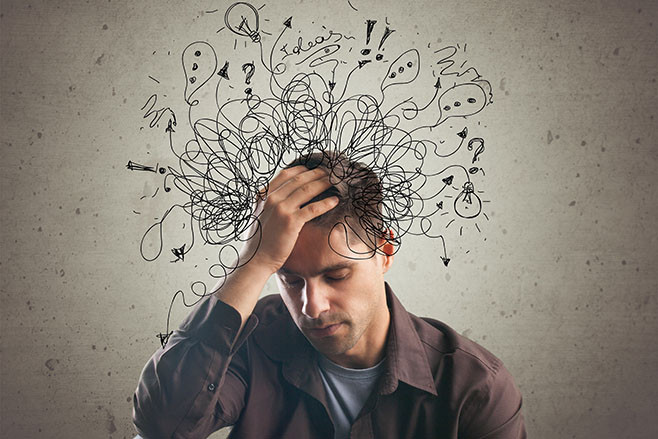
Though they are undoubtedly important, worthwhile goals in and of themselves, there is far more benefit to be had from regular exercise than aerobic capacity, muscular size and endurance and weight loss. It’s always a good idea to work on these things, keeping on top of your physical health and your physique.
However, today I want to talk about an additional, important aspect of leading an active lifestyle and engaging in regular exercise: the benefit you will feel to your mental health and wellbeing.

Why exercise?
To begin by putting it a little unscientifically: Regular exercise gives people an enormous sense of wellbeing.
Throughout the day following a good workout, people will generally feel more invigorated (depending on how hard they pushed themselves). In general, they will also have more energy. Vasodilation improves, meaning more oxygen is being sent around the body. Insulin resistance is also improved, as are several other metabolic markers, meaning that energy is more efficiently used. Lung capacity will obviously increase, so that the amount of oxygen coming into the body is increased, and muscular endurance will improve, meaning less overall fatigue.

Regular exercise should also allow you to sleep better, reaching REM deeper and more consistently. You will have clearer short-term memory and sharper overall cognition. You will overcome obstacles and challenges that will show you your true potential and give you self-confidence in your own image and being.
For these reasons and more, exercise is great for your mental health. Conditions such as depression, anxiety, ADHD, and more will all benefit greatly from regular physical exertion and an active, well-rounded lifestyle.
It doesn’t have to be hardcore training, either: really quite modest amounts of exercise can have a profound effect. Simple things like an elderly person going for a moderate daily walk can be as powerful as an hour-long session at a CrossFit box.
How does it work?
Let’s run through a few of the more common mental health issues with which modern society finds itself wrestling, and how they can be aided by exercise:
Depression
Depression is a big deal to a great many people and can be crippling to an individual’s wellbeing.
In cases of milder depression, exercise can work as an antidepressant, with the structure of regular training sessions and the endorphins released during physical activity working to get people out of their low. Exercise boosts the brain’s dopamine, norepinephrine, and serotonin levels, all of which affect focus and attention and will improve mood.

Getting yourself into a healthy pattern and routine can severely reduce the effects and risks of depressive episodes. Even just a short, ten to twenty minute daily jog or hour long walk can reduce risk of depression by over a quarter.
Anxiety and stress
Exercise is well-known for relieving anxiety and stress. The improved mental energy and the endorphin release you will get are a natural treatment for anxiety. Alongside the above benefits to depression- a common problem for those suffering with anxiety- the meditative nature of certain exercises can really help to calm you down and promote mindfulness.
Adding a mindfulness element to your routine- trying to focus on your body, the movements you’re undertaking, the feelings and sensations at play- will be perfect for relieving overall anxious behaviour.

Such bodily stress is often the physical manifestation of your mental state. There are some quite profound physical issues and discomforts that come with anxiety and stress. Muscular tension, particularly across the back, head and neck, are all common with those suffering from stress. Tightness in the chest, muscle cramps and headaches are also quite regular occurrences, and it can get worse. Problems such as insomnia, heartburn, stomach-ache, diarrhoea, and frequent urination are all common.
The endorphins released during exercise can relieve these greatly, as can the enhanced vasodilation. Both will work to relax your muscles and relieve full body tension.
Attention Deficit Hyperactivity Disorder (ADHD)
Exercise helps to improve concentration, as I’ve gone into above. Both as a series of physical mechanisms and as a meditative practice, it aids in cultivating mental focus, motivation, memory, mood and a sense of calm. It is also calming, relieving much of the anxiety that often accompanies conditions like ADHD.
Exercise’s boosting of dopamine, norepinephrine, and serotonin will help with focus and attention. In this way, exercise has been compared to common ADHD medicines like Adderall and Ritalin.

Anger and aggression
For much the same reasons that exercise can help with stress, so too can it help to reduce anger. The endorphins released, the dopamine, norepinephrine, and serotonin, will all help to induce a state of positive wellbeing that runs counter to aggressive, anger fuelled behaviour.
Anger can also often be the result of depression which, as we have seen, is one of the main beneficiaries of an active lifestyle filled with regular exercise.
Aside from this, hard, physical training can also help you to give vent to the aggression bound up inside: let it out in the gym so that it doesn’t surface in your daily life.

PTSD and trauma
PTSD and trauma often come with some of the conditions already mentioned- depression, anxiety and lack of focus are common. As I’ve already run through, exercise can help tremendously with relieving these symptoms.
PTSD and trauma are often characterised by an immobilisation stress response in the body’s nervous system. Shifting your focus onto your body and its sensations, as exercises forces you to do, can often help to reverse this process, retraining you out of this response.
Paying attention to your movements, treating it like the meditative process I’ve already laid out, can be of particular use: focus on the physical sensations in your joints and muscles as you train. Forms of exercise that promote multi-directional movements are best: climbing, swimming and yoga are all good ones to try.
Of course, there are many more mental health conditions that can be aided by exercise, but hopefully this has given you an idea of the kinds of benefits that regularly being active can bring. If you struggle with mental health, or are wary of falling into behavioural patterns of the kind associated with depression, stress or anger, look to exercise: reinforce healthy patterns and treat your body to something uplifting.



